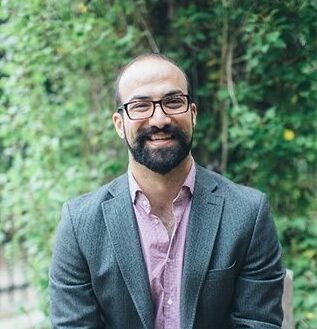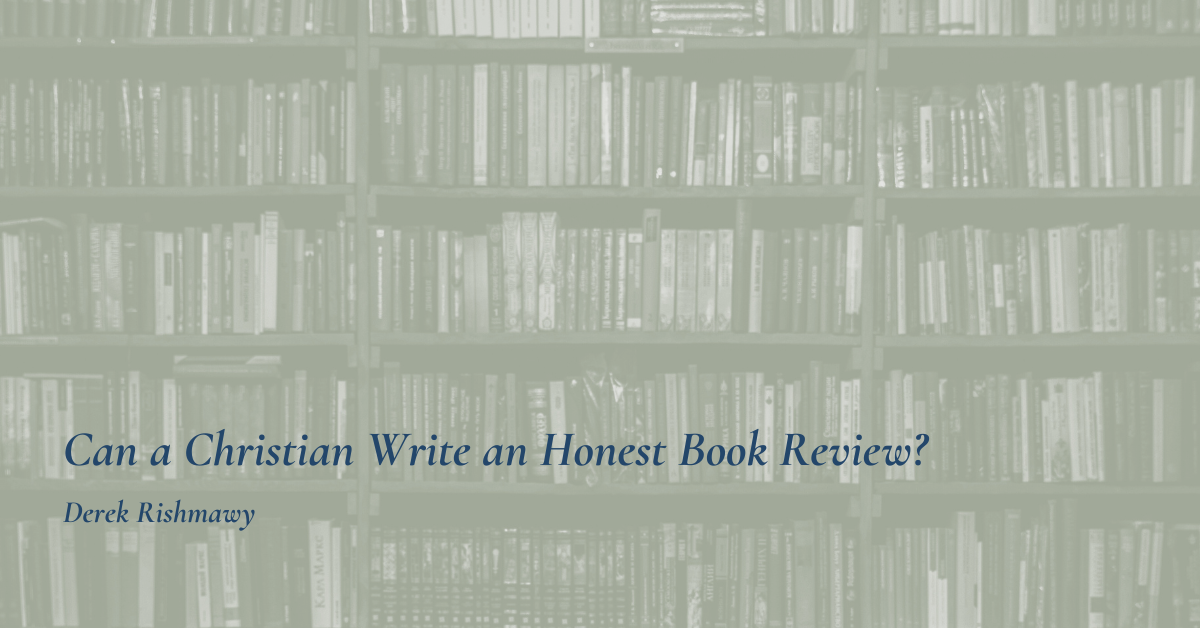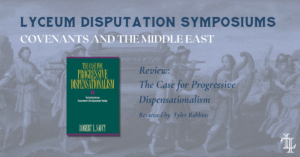Over the last few days there has been an online hullabaloo over Andrew Rillera’s book, Lamb of the Free. Former pastor, and now teacher/author, John Mark Comer has now read it and gave it his seal of approval at having delivered a death blow to penal substitution, which cause an uproar. When a pastor with as big a following among Millennials and GenZ as Comer does declares a hallmark of Evangelical belief dead on arrival, that is sure to make waves. Having not had the chance to read the book yet (dissertation, job, etc.), and having a general policy of not reviewing books before having read them, I make no comment about Rillera’s book. What’s more, scholars I take seriously have said this is a serious book, so I want to consider it. Indeed, a couple of days ago, I cautioned folks rushing to review the book to be judicious, cautious, fair, both for the sake of honesty and so that reasonable criticisms might be heard in good faith. Nevertheless, that’s precisely where I think there is one point I can make: not so much over the argument in the book, but who can have the argument?
Can an Evangelical be an Academic?
After several online figures in the Evangelical world had sounded off with varying levels of shock and dismissal, Rillera commented, “Reminder that discussion of PSA by evangelical scholars are hamstrung by the fact that many of their institutions make them sign statements of faith that explicitly uphold PSA as a condition of their employment. So their paychecks are contingent on them being bad faith interlocutors.”
Now, it’s understandable that someone would be annoyed that certain evangelicals are condemning your book before they have read it. I get that. Academics, at least, generally shouldn’t do so.
But just as a plain matter of argument and rhetoric, this a form of ad hominem known as “poisoning the well”, where in advance of any critique, you impugn the character and motives of your potential opponent. “Any counter-arguments from this type of person is a rationalization to protect yourself from the cognitive dissonance of being wrong. Your job depends on it.” Obviously, the immediate, similarly ad hominem, tu quoque reply is, “and you’re not really prepared to listen to any critique from the sort of folks who would want to critique the book because you wrote the book against them.”
Of course, I don’t believe Rillera is incapable of considering counter-arguments and criticisms, and from what I gather, he does so in the book. I am just saying once you start playing that game, it’s easy to do it in all sorts of directions.
The more interesting point, though, is the intellectual principle it assumes: anyone who is bound to a creed or confession cannot be trusted to be operating honestly or with full intellectual consistency with respect to issues they have committed to.
When challenged on this exact point by Jacob Denhollander who asked, “while this may be true in some cases, does this mean discussion about the Trinity and open theism are like-wise hamstrung and ensure bad-faith arguments?” Rillera modified a bit saying there could be internally honest actors, but he nevertheless doubled-down, questioning whether that sounded “like a fruitful environment to have a serious discussion and exploration of the relevant historical and exegetical arguments.” For even when some folks might internally have good faith motives, the environments “inherently stifle the interactions.” He further claimed that core doctrines like the Trinity and the person of Christ are different because “creedal orthodoxy is a given for all Christians. Secondary issues (everything outside the seven ecumenical creeds) are absolutely hamstrung by restrictive statements.”
There are several points worth making in response.
Can a Christian be an Academic
In the first place, it really is hard to see this as anything other than a more modest version of your average critical scholar or religious studies professor’s criticism of any sort of believing scholarship:
“So-and-so is a committed (socially, economically, spiritually) Nicene believer and therefore impossible to be objective and open enough to consider the data, consider the arguments, etc. How can a Christian who has to affirm Nicaea and Chalcedon truly engage with the scholarship around whether the NT teaches monotheism, or Jesus is presented as divine in the NT, or the affirmation and relationship between the two natures? How can they honestly—if their job or perhaps their eternal salvation is riding on it—have fruitful discussions about disputed issues (and there are disputed issues in ‘Early Christian Studies’) around whether or not the NT teaches the homoousion and so forth?”
I think many critical Biblical scholars—folks who would share Rillera’s objections to PSA probably—would agree and admit that this, in fact, is simply a form of special pleading. Just peruse some of the debates and critiques around the Theological Interpretation of Scripture movement and you’ll see what I mean, or the way folks with “Early Christian Studies” in their bio talk about the idea of “New Testament Theology.” The reality is, we have been having this discussion about exegesis without presuppositions, the tension between academic freedom and confessional fidelity, and so on, at least since the Enlightenment and certainly much of the 20th Century.
While Evangelicals typically have a longer list of doctrines they have to affirm, and their own idiosyncratic local politics (which is not above criticism), the principle is the same. And once we see that, it’s one we need to stop and think through.
The Priesthood of the Professorate
Do we want to say that Father John Behr at St. Vladimir’s or Matthew Levering at Mundelein can’t be trusted to be do honest scholarship on the filioque, or read opposing views with fairness and care because they are already committed to churches that make these de fide doctrines? Or again, do we need to recognize that Wesleyans at Wesleyan universities must have a hard time honestly considering arguments about entire sanctification, and Lutherans teaching at Lutheran seminaries must be compromised in their ability to evaluate presentations of Reformed Christology because their job is riding on it? Can we therefore regard their arguments with suspicion from the outset?
Keep pushing this a little further, though.
Taken to its logical conclusion, the principle implies that no matter what kind of university they work at, no pastor, priest, or cleric who is ordained into a denomination or church that requires doctrinal fidelity to their doctrinal standards can be trusted to do fair theological scholarship, because they are committed—their jobs depend on it. Instead, we must apparently all depend on unordained, independent scholars at secular schools, with no church affiliation where we can find the most honest, fruitful discussions at work because nobody’s job is ever on the line for ideological reasons there?
This is why folks have pointed out for a long time that enlightenment assumptions about the nature of intellectual freedom and autonomy, or the need for the independence of theology and biblical studies from the guidance and oversight of the churches just ends up delivering us over to the Priesthood of the Professorate, the Magisterium of the Guild.
While somebody coming from a more secular or non-Christian point of view may just want to go ahead and bite that bullet, someone who is a believing Christian, who affirms the seven ecumenical councils and three ecumenical creeds probably wants to give pause before they go there. For that’s the kind of thing that would seem to go against the idea that God has given us apostles, prophets, teachers, pastors, and so on to honestly guide God’s people into truth (Eph. 4). I am sympathetic to Calvin’s suggestion that “doctor of the church” should be an office, but not if it implies only tenured, un-ordained, independent professors can occupy that space (though I am happy to include them).
Now, do I think Rillera is directly saying this or wants to affirm this? No. And really, Rillera isn’t even the point. What he did, though, was articulate a common sentiment I’ve seen deployed time and again in disputes like these. What I am saying is that once you recognize the special pleading going on, for consistency’s sake, you have to either walk down the accusation against Evangelicals as being uniquely compromised here or ditch the ad hominem principle.
This is Everybody’s Problem
The reality beyond this is that this is not a uniquely evangelical problem. You have progressives, liberals, non-Evangelicals of every stripe who have related and analogous pressures. I mean, anybody who has paid attention to SBL/AAR social media knows that one of the pressures to be accepted as a scholar in good standing in some sectors of the guild is to sufficiently distance yourself from Evangelicals either through ritual denunciation or explicit academic attack. (And of course, they are not unique in this either, as Evangelicals have their own versions of this.)
Am I saying there aren’t bad reviews or obviously theologically blinkered ones because of prejudices or institutional pressures? No. Again, for Evangelical reviewers, I will reiterate that I really do think people need to slow down and be fair when it comes to the book, even if it is coming for a doctrine you hold dear.
I’m just making the case that it is not Evangelicals alone who face pressures shaping their scholarship, nor is it an intrinsically bad thing. I don’t think any scholar—confessional or otherwise—can truly claim to be free from such constraints. So alongside giving due diligence to works we are initially predisposed to disagree with, we should avoid the temptation to dismiss opposing criticisms by questioning the integrity of their institutional commitments. These things are hard. I am far from being above these temptations myself. My hope is we can move past suspicion-by-association and judge arguments on their merits, regardless of the creeds or communities to which their authors belong.
Author
-

Derek Rishmawy (Ph.D., Trinity Evangelical Divinity School) is a Campus Minister with Reformed University Fellowship and co-host of the Mere Fidelity podcast.
View all postsRecent Posts




